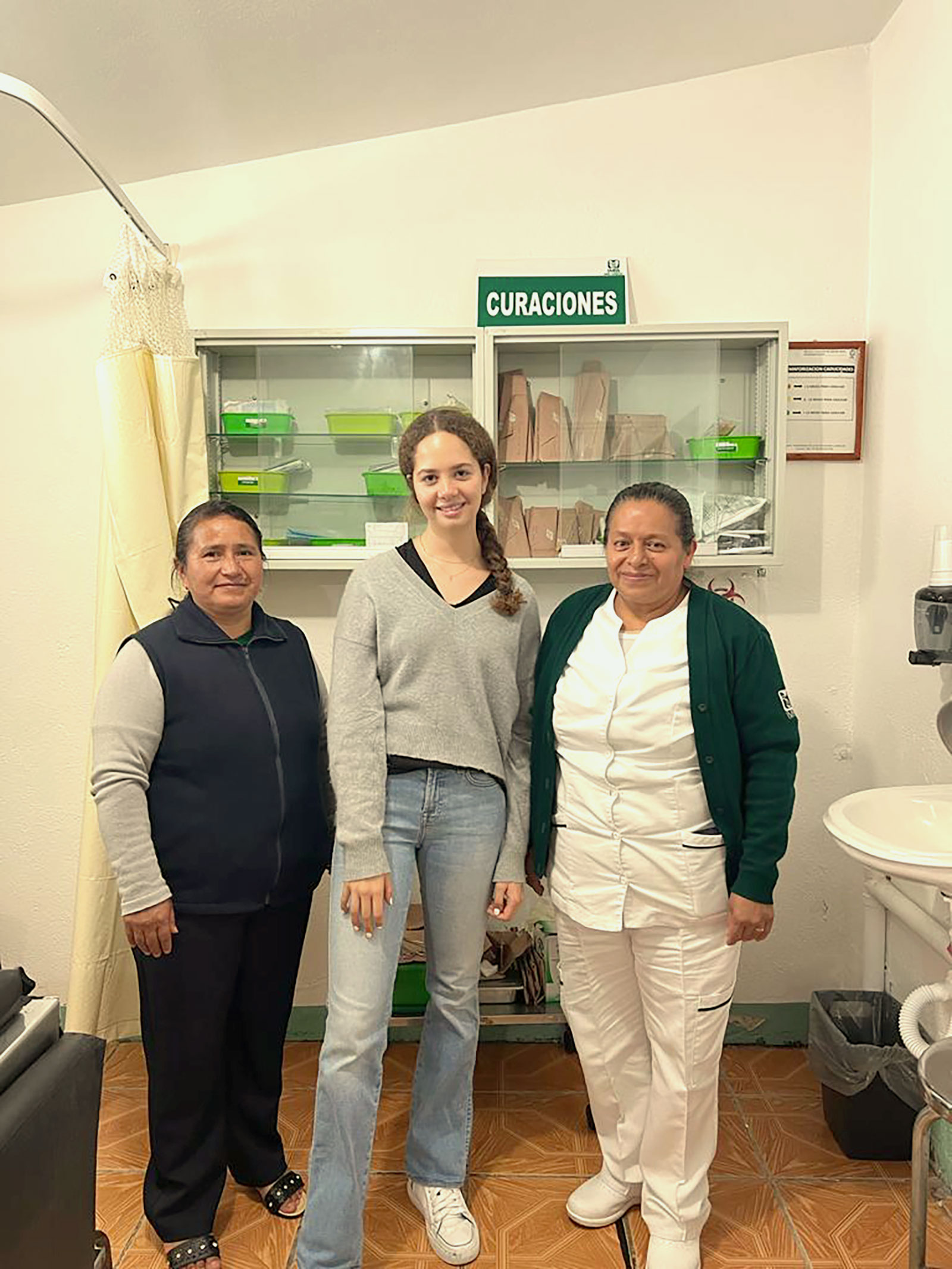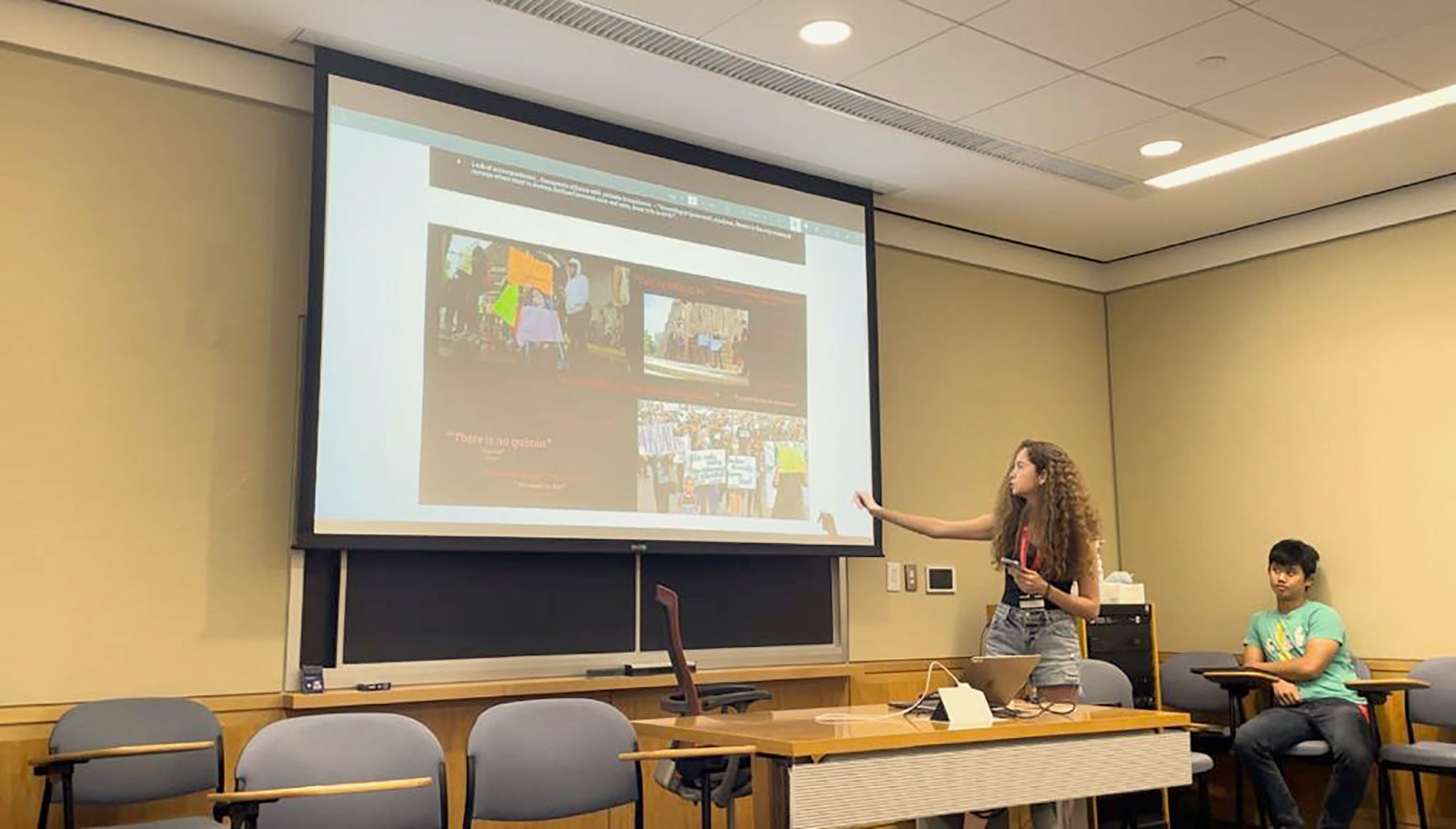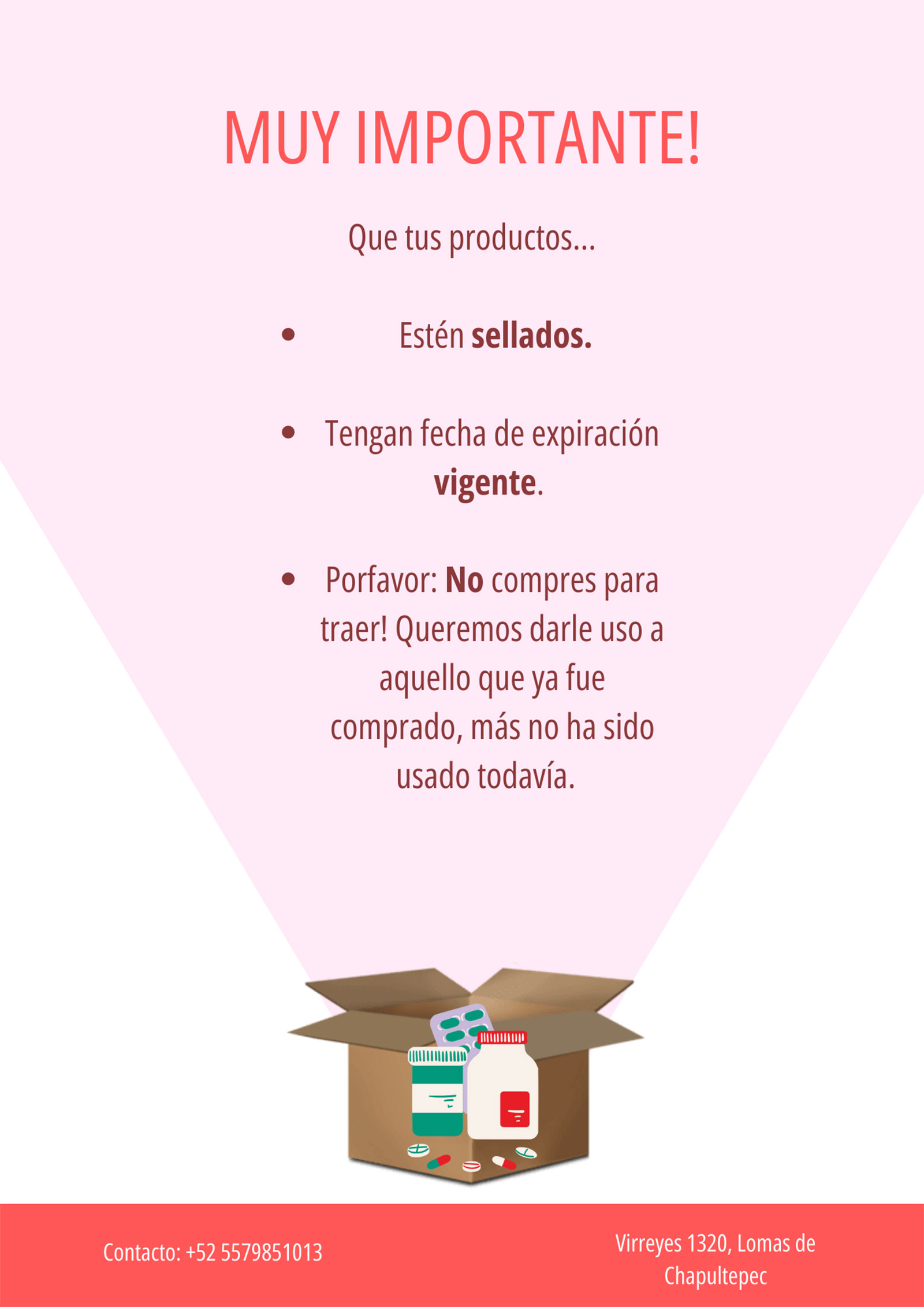When Natalia Amkie came to Harvard’s Pre-College Program, she was looking to enrich her knowledge of global health inequities, sparked by her first-hand experience in her home country of Mexico.
During her experience at Harvard Summer School, she was enrolled in “Who Lives, Who Dies” and, upon returning home, was motivated to affect change in her community.
What class did you take and why did you choose it?
I took “Who Lives, Who Dies”. It centered on the field of public health where we explored and analyzed a number of global case studies, each one related to a global healthcare issue, like tuberculosis, cancer, mental health, and healthcare in underserved communities.
I chose this course because I have always been very interested in the medical field. Recently my native country, Mexico, had suffered from a shortage of oncological medicine, and protests crowded the streets for days on end. Underserved communities were being left unattended, because medicine was only being distributed to the upper class.
I wanted to properly understand how to eliminate healthcare disparities and every aspect of this course resonated with my country’s healthcare issue. The sense of familiarity related to my country that was going through a very similar situation to the case studies we were learning from, which allowed me to understand and develop my passion for public health even further.
What do you want to pursue as a career?
This course shifted the way I view the medical field because I originally came to this course with curiosity for the social aspect of medicine. I left the course with an incredible passion to bring about change in the world of health care.
I was so moved by all the concepts we explored that I made my final project proposal a reality when I came home. I am definitely looking forward to pursuing this career in the future.
How did you develop your final project and how did you implement it?
My project was planning a medicine drive to take to a healthcare facility in a town east of Mexico City. When I got home, I planned a medicine drive to collect sealed, unused medications and I delivered the medication and the supplies at the town’s central healthcare facility. I also spent some time talking with the nurses about the shortage of medicine they were suffering from and some of their urgent needs.
I did this project proposal as my final project and presented it to Mr. Silverstein. When I got home, I sent out a flier that called for all medicines and collected them. Once I had everything, I took them to the medical facility and when I spoke with a nurse, she told me that this medication was going to be very useful for them because it is a government-funded health care facility.
They were very short on a lot of things, even Ibuprofen. They told me they needed a pen and ink to print patients’ documents and that the medication was going to be consumed for sure in the next couple of days. When I checked back in on how the facility was doing, they told me that the medication was being used.
What sparked the leap from learning to taking action?

Coming from a country that was going through the same things that we were exploring in my course really resonated with me and motivated me to take that step. I can’t say enough about how contagious the passion with which Professor Silverstein taught this class was, and I was just very inspired by all the concepts we explored.
Attending taught me how important it is to explore your academic interests prior to applying to college, and after attending Harvard’s Pre-College Program, I’m more motivated than ever to immerse myself in the field of public health and to pave the way toward a more equal healthcare system in my country.
What was the experience of getting a preview of college life like?
I was looking for a way to get a feel for college and to pursue my academic interests prior to applying to see if going into the medical field is what I really wanted to do.
It was amazing — the independence and the broad range of tools that Harvard provides to students not only academically, but socially as well. The program provides specific times for socializing and for academics. You meet people from all over the world and make friends that extend far beyond the classroom in the span of two weeks. It was very complete in all its aspects culturally, academically, and socially — the perfect balance.
We would come together after classes and have lunch together. The memories we made will forever be with me. Also, the connection with your professor and all the help and tools Harvard gives you is really memorable. It makes the experience unforgettable.
This course really fulfilled its goal. It reiterated the passion I have to serve others, and provided me with the education necessary to begin to pave this way towards a more equal healthcare system — and that was what I was looking for.



